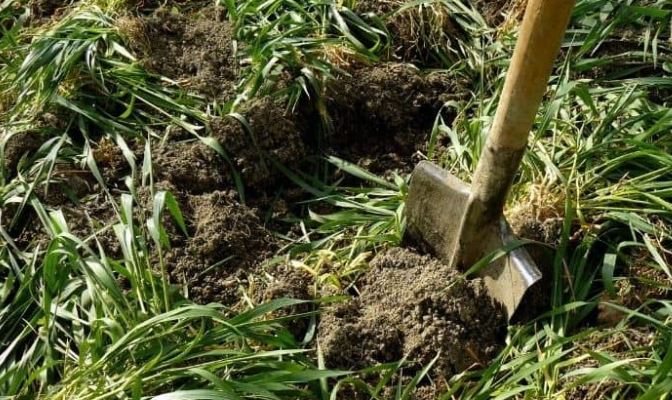Green Manure – Characteristics, benefits, and limitations

Context: The Punjab state agriculture department is promoting the cultivation of green manure these days.

What is green manure?
- Green manures are crops grown specifically for maintaining soil fertility and structure.
- They are normally incorporated back into the soil, either directly, or after removal and composting.
Varieties of green manure:
- There are three main varieties of green manure, including Dhaincha, Cowpea, and Sunhemp.
- Also, some crops such as summer moong, mash pulses and guar act as green manure.
Characteristics of green manure
- Experts said that green manure must be leguminous, and bear maximum nodules on its roots to fix a large amount of atmospheric nitrogen in the soil.
- These can be sown immediately after harvesting the wheat crop.
How does it benefit the soil and crop?
Enhancing the organic matter:
- Experts said that it helps in enhancing the organic matter in the soil, meets the deficiency of the micronutrients and reduces the consumption of the inorganic fertilizers etc.
A good alternative to the organic manure:
- It is a good alternative to organic manure and it conserves the nutrients, adds nitrogen and stabilizes the soil structure.
Rapid decomposition helps to release nutrients:
- It decomposes rapidly and liberates large quantities of carbon dioxide and weak acids, which act on insoluble soil minerals to release nutrients for plant growth.
Dry matter:
- It contains 15 to 18 quintals of dry matter, which also contains phosphorus, potassium, zinc, copper, iron and manganese, per acre and 20 to 40kg per acre of nitrogen.
Suppress weed growth:
- Green manure crops naturally can suppress weed growth, hence preferred by farmers.
Prevention of soil erosion, and Increase in topsoil stability:
- Soil erosion is prevented with improved stability of the topsoil.
- This helps to improve the overall soil structure by providing porosity and aeration in the soil.
Limitations of green manure
Nutrient pollution:
- Sometimes excessive use of green manure may cause over-fixation of nitrogen and phosphorus into the land making it toxic and further leading to nutrient pollution.
Too costly:
- Green manure crops may prove to be too costly for the farmers; it may end up meaning that they will plant fewer cultivation crops for the sake of planting green manure crops.
Impact on marketable cash crop:
- Farmers won’t be able to plant their marketable cash crop during the manure phase as sometimes they may choose to increase land fertility rather than plant crops.
Impacts the primary source of income:
- The green manure crop may sometimes compete with the crops that will be the primary source of income.
What are the government efforts in this regard?
Sub- Mission on Seed and Planting Material (SMSP):
- Under Sub- Mission on Seed and Planting Material (SMSP), the govt. provides 50% cost assistance for the distribution of green manure required for a one-acre area per farmer.
Paramparagat Krishi Vikas Yojana (PKVY):
- The Paramparagat Krishi Vikas Yojana (PKVY) promotes cluster-based organic farming with PGS (Participatory Guarantee System) certification.
Why the green manure cultivation promoted in Punjab?
Subsidy on the seed:
- Green manure cultivation is promoted as Punjab Agro is providing subsidy on the seed at the rate of Rs 2,000 per quintal, which costs Rs 6,300 per quintal without subsidy.
- The farmers can avail of their seed from the block level offices of the agriculture department as limited stock is available with the department and farmers can avail of it on first-cum-first-served basis.
Punjab’s per hectare fertiliser consumption:
- Punjab’s per hectare fertiliser consumption, which is around 244 kg, is one of the highest in the country and is also higher than the national average.
- Growing green manure can curtail this consumption to a large extent by 25 to 30% and can save huge input costs for the farmers.
High-intensity agricultural practices:
- In Punjab high-intensity agricultural practices are prevalent as farmers take two-three crops in a year, which requires lots of chemical fertilizers such as urea, DAP etc.
- This leads to deficiencies of micronutrients like iron and zinc, especially in the soils where rice is cultivated thus affecting productivity.
- In such a situation, green manuring helps improve soil health and enhance the productivity of the crops.
Practice Question for Mains
- Discuss the benefits and limitations of sowing green manure. (250 Words, 15 Marks).
If you like this post, please share your feedback in the comments section below so that we will upload more posts like this.

